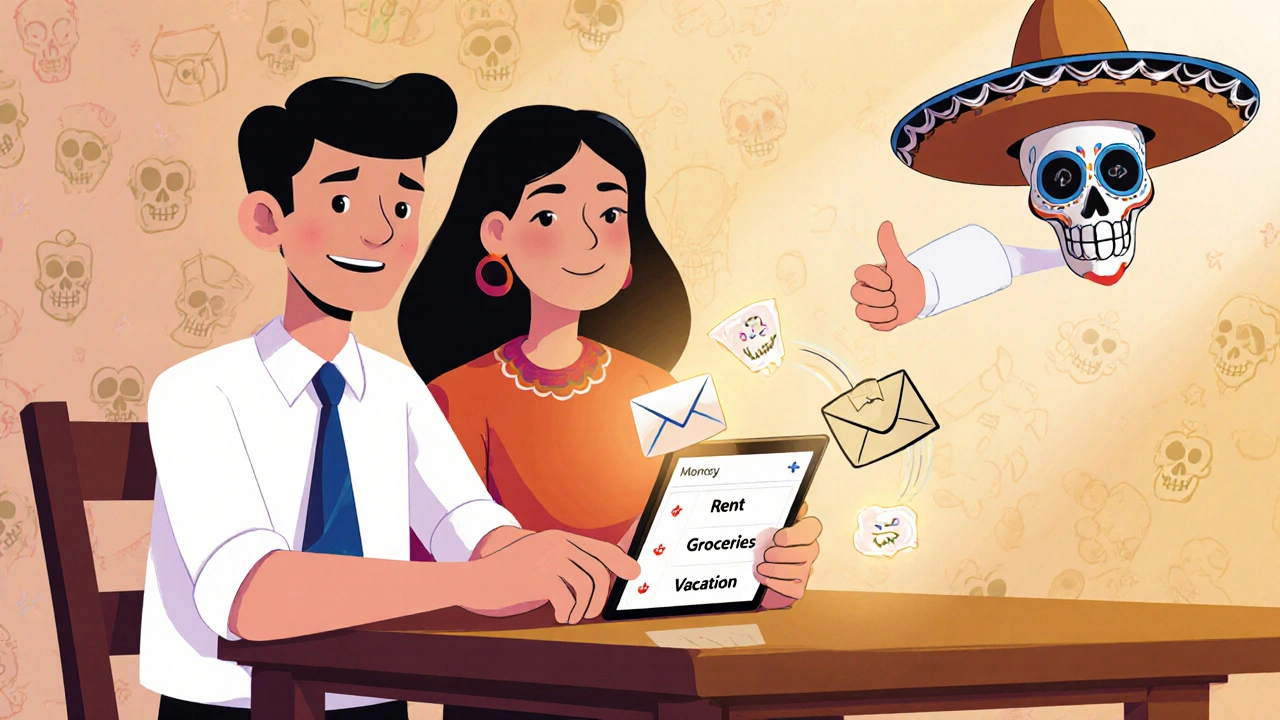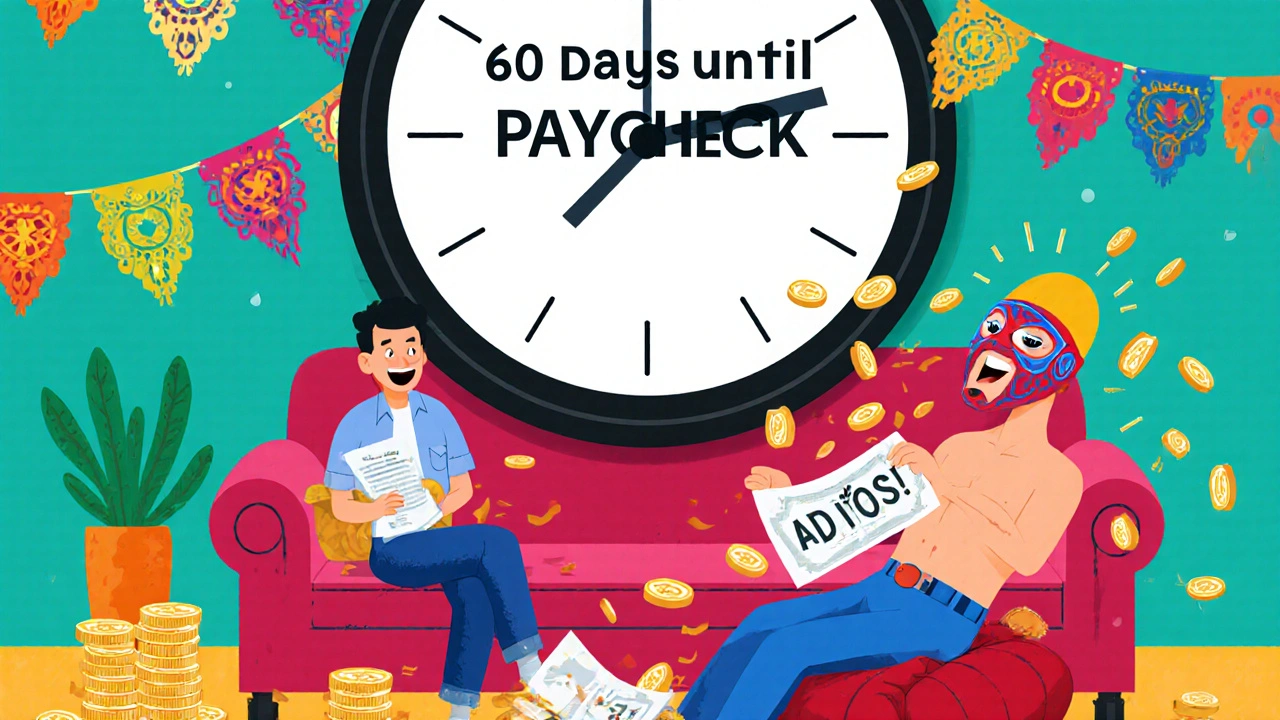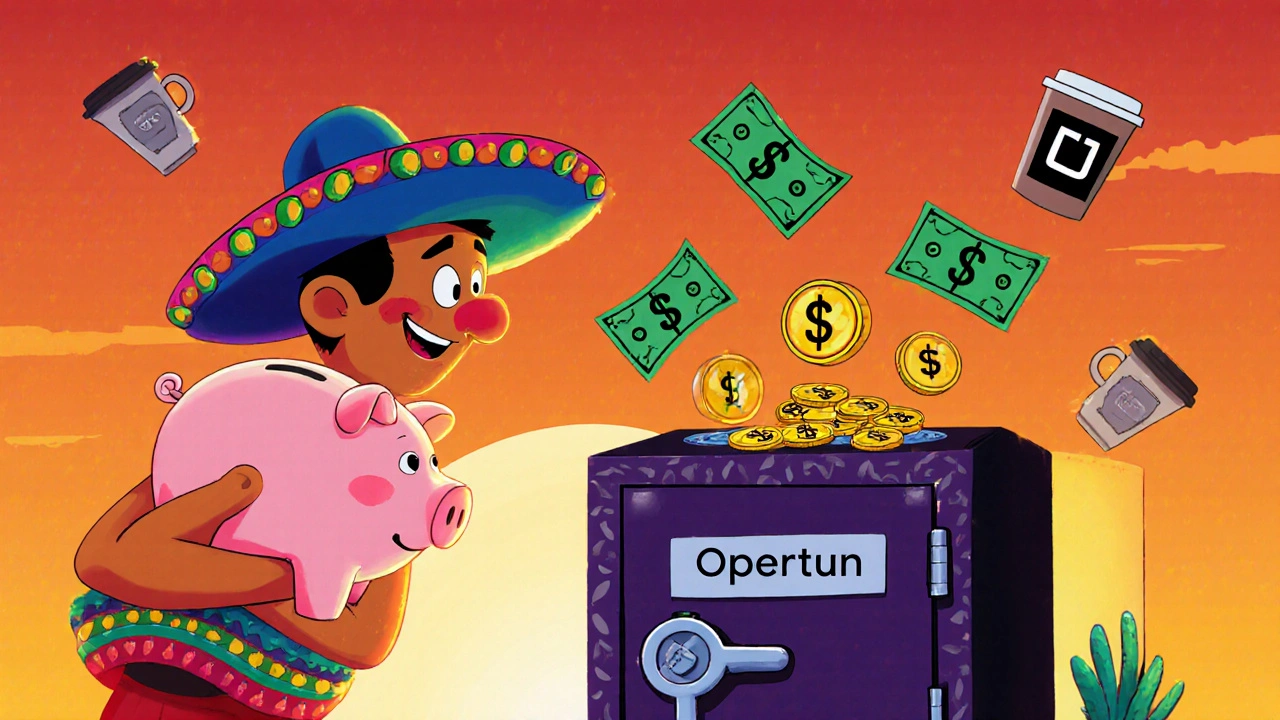Savings Impact Calculator
How Much Could You Save?
See how fintech tools can transform your savings habits. Input your current situation to see potential savings.
Your Savings Potential
What Would This Mean For You?
At this rate, you could build a $0.00 emergency fund in 0 months.
Most people want to save more, but few actually do. It’s not because they don’t earn enough. It’s because saving feels hard, confusing, or like another chore on a long list. Fintech tools have changed that. They don’t ask you to be disciplined. They make saving automatic, invisible, and even a little fun. If you’re still manually transferring cash to a savings account every payday, you’re working harder than you need to. The right fintech tools do the work for you.
How Fintech Makes Saving Effortless
Traditional saving requires willpower. Fintech removes it. Instead of asking you to save $200 a month, apps like Oportun look at your checking account balance and spending habits. They figure out what you can afford to move to savings without you even noticing. If you get paid on Friday, they might move $18 on Monday, $12 on Wednesday - tiny amounts that add up to $150 a month. No decision needed. No guilt when you spend.
This isn’t magic. It’s behavioral science. People are wired to avoid pain more than they’re motivated by gain. Fintech apps use that. They don’t say, “Save for your vacation.” They say, “We’ll take $5 from your coffee money and invest it.” You don’t feel the loss. You just end up with more.
Chime does something similar. When your paycheck hits, it automatically moves a percentage - say 10% - into a separate savings account. You never see that money in your checking account. It’s gone before you can spend it. And if you accidentally overdraw? Chime offers fee-free overdraft protection up to $200. That’s a big deal if you’ve ever paid a $35 fee because you forgot to check your balance.
Top Fintech Tools for Saving in 2025
Not all apps are made the same. Some are for people who like control. Others are for people who just want to forget about money. Here’s what actually works in 2025.
- Acorns: Rounds up your debit card purchases to the nearest dollar and invests the difference. Buy a $4.75 latte? $0.25 goes into a portfolio of ETFs. You can start with $5. But watch the fees - $3/month for balances under $1,000 eats into small gains. Only use this if you’re already saving $50+ a month.
- Qapital: Lets you set custom rules. “Save $5 every time I order takeout.” “Save $20 when I log a workout.” It turns saving into a game. One Reddit user saved $1,200 in six months just by setting a rule to save every time they used Uber.
- Monarch Money: If you’re tired of Mint being gone, this is the replacement. It syncs your bank accounts, credit cards, loans, and investments. You get a real-time net worth dashboard. It also lets your partner or family member join for free - no extra cost. Perfect for couples trying to save together.
- Rocket Money: This one finds subscriptions you forgot about. That $12.99/month app you haven’t used since 2022? Rocket Money finds it and helps you cancel. The premium version ($3-$12/month) even calls companies to negotiate lower bills. One user saved $187 in one month just by canceling three unused services.
- Goodbudget: Uses the envelope system - digital envelopes for rent, groceries, entertainment. You allocate cash to each one. When it’s gone, you stop spending. Great if you like structure. The free version limits you to two devices and five envelopes. If you’re serious, pay the $8/month.
For those in Nigeria or dealing with currency volatility, Nearpays offers savings accounts paying 24% annual interest - unheard of in the U.S. It also lets you hold and spend U.S. dollars, protecting your savings from local inflation. It’s not for everyone, but if you’re in a high-inflation economy, it’s a game-changer.
Where Fintech Saves You Money (Beyond Just Saving)
It’s not just about putting money aside. Fintech tools cut costs you didn’t even know you were paying.
Revolut, for example, gives you real-time foreign exchange rates - just 0.5% above interbank rates. Compare that to your bank’s 3-5% markup on international purchases. If you travel or buy from Amazon UK, you’re saving 75% on fees. Same goes for sending money abroad. Traditional services like Western Union charge $50 to send $500. Revolut does it for under $5.
And then there’s subscription cleanup. The average American pays for 11 digital subscriptions. Half of them go unused. Rocket Money and Trim (now part of MoneyLion) scan your statements and flag recurring charges. One user found they were paying $48 a month for three streaming services they never watched. Canceling them freed up $576 a year - more than most people save in a year.

The Hidden Risks (And How to Avoid Them)
Fintech isn’t risk-free. The biggest danger? You think you’re saving when you’re not.
A 2025 study from the Financial Futures Institute found that 68% of users who’d been using automated savings apps for over a year still couldn’t cover a $1,000 emergency. Why? Because the apps optimized for small, steady deposits - $5 here, $10 there. They didn’t build real safety nets. You need to set a goal: “I want $5,000 in emergency cash.” Then use the app to hit it. Don’t just let it run on autopilot.
Another risk: data security. These apps connect to your bank accounts. That’s powerful - but risky. Most use 256-bit encryption and two-factor authentication. Still, there have been 12 documented breaches across major platforms since 2022. Only use apps that let you limit access to read-only mode. Don’t give them permission to move money unless you’re 100% sure.
And then there’s the “Mint problem.” Mint shut down. Thousands of users lost access to years of data. That’s why you should pick tools that let you export your data - CSV files, PDF reports, whatever. Monarch Money and PocketSmith do this. If the app disappears, you still have your records.
What Works for Different People
There’s no one-size-fits-all. Your tool should match your personality.
- If you’re a spender: Go with Oportun or Chime. No setup. No thinking. Just let the app take what it thinks you can afford.
- If you like control: Try YNAB (You Need A Budget). It’s $99/year and has a steep learning curve, but it teaches you how to budget with purpose. It’s not just tracking - it’s reprogramming your relationship with money.
- If you’re irregularly paid (freelancer, gig worker): PocketSmith is the only app that lets you forecast cash flow based on future income and expenses. It shows you what your balance will be in 60 days. That’s huge if you’re waiting for a client check.
- If you’re saving with someone else: Monarch Money is the only app that lets couples share a budget without paying extra. No more arguing about who spent what.
Most people start with one app. Then they add another. That’s fine. But don’t overload yourself. Pick one automation tool (like Chime) and one budgeting tool (like Monarch). That’s enough to start seeing real change.

Getting Started: Your 15-Minute Plan
You don’t need to overhaul your life. Here’s how to begin today:
- Choose one app based on your style. If you’re unsure, start with Chime - it’s free, simple, and works for most people.
- Link your checking account. Only give read access at first. You can upgrade later.
- Set your first goal. “Save $1,000 in 6 months.” Let the app suggest how much to move each pay period.
- Turn on automatic transfers. Don’t think about it again.
- Check your progress every 30 days. Not daily. Just enough to feel momentum.
That’s it. No spreadsheets. No budgeting classes. Just automation and consistency.
What Comes Next
The next wave of fintech isn’t just about saving. It’s about predicting. Monarch Money’s Predictive Budgeting 2.0 can tell you, two weeks ahead, if you’ll be short on cash. Nearpays’ AI assistant suggests the perfect time to save based on your spending patterns. These aren’t sci-fi features - they’re live in 2025.
But the real win isn’t the tech. It’s the peace of mind. You stop worrying about money. You stop feeling guilty. You stop living paycheck to paycheck. That’s what these tools deliver. Not magic. Just better systems.
Start small. Pick one tool. Let it work for you. In six months, you’ll wonder why you didn’t do this sooner.
Are fintech savings apps safe?
Most reputable apps use 256-bit encryption and multi-factor authentication. But they connect to your bank accounts, which creates a larger target for hackers. To stay safe, only grant read-only access at first. Avoid apps that ask to move money unless you trust them completely. Always check if the app lets you export your data in case it shuts down.
Do I need to pay for these apps?
Many apps are free - Chime, Acorns (for basic use), Goodbudget (free tier), and Rocket Money’s basic plan. Paid apps like YNAB ($99/year) or Monarch Money ($14.99/month) offer deeper features like budgeting, forecasting, and collaboration. If you’re just starting, try free tools first. Pay only if you’re using the features daily and seeing results.
Can fintech apps help me save for a house or retirement?
Yes - but not directly. Apps like Acorns and Qapital invest your spare change, which can grow over time. But they’re not designed for long-term goals like retirement. For that, you need a separate IRA or brokerage account. Use fintech tools to build your emergency fund and down payment, then move larger sums into tax-advantaged accounts.
Why do some apps fail to sync with my bank?
About 15% of users have syncing issues, especially with credit unions and smaller banks. These institutions often use outdated technology that doesn’t support modern APIs. If your bank isn’t syncing, try manually uploading statements or switching to an app that supports file uploads (like Monarch Money). Avoid apps that rely solely on bank connections if you use a smaller financial institution.
Is it better to use one app or multiple?
Start with one. Using too many apps at once leads to confusion and drop-off. Pick the tool that matches your biggest pain point - whether it’s forgetting to save, overspending on subscriptions, or not knowing where your money goes. Once you’re comfortable, you can add a second tool for a specific goal - like Acorns for investing or Rocket Money for bill negotiation.
What happens if the app shuts down like Mint did?
Mint’s shutdown left many users scrambling. To avoid this, choose apps that let you export your financial data as CSV or PDF files. Monarch Money, PocketSmith, and YNAB all offer this. Never rely on an app to store your financial history. Use it to help you save - but keep your own backup.

Graeme C
November 15, 2025 AT 00:13Let’s be real-most of these apps are just fancy autopay for guilt-free spending. I tried Chime. Within three months, I had $800 saved… and zero idea how it got there. Then I got a surprise medical bill and realized my ‘emergency fund’ was just loose change. Fintech doesn’t solve the problem-it just hides it behind a pretty dashboard. If you want real savings, you need to know your numbers. Not just let an algorithm decide what you can afford. That’s not financial freedom. That’s financial denial with notifications.
Astha Mishra
November 15, 2025 AT 07:40While I appreciate the pragmatic approach to automating savings, I find myself reflecting on the deeper philosophical implications of outsourcing our financial discipline to algorithms. In a world where we are increasingly detached from the physicality of money-where digits vanish into invisible accounts and micro-transactions dissolve into the ether-we risk losing the very emotional and psychological connection to value that has historically sustained human economic behavior. Is it truly progress if we no longer feel the weight of saving? If we no longer count pennies, do we still understand worth? The tools may be brilliant, but they may also be eroding our capacity for mindful stewardship. Perhaps the real innovation is not in the app, but in the intention behind its use.
Dave McPherson
November 15, 2025 AT 15:45LMAO Acorns? You’re telling me people are still using this dumpster fire? $3/month to invest 25 cents from a latte? That’s not investing-that’s paying a subscription to feel like you’re doing something while your money gets eaten by fees and mediocre ETFs. And don’t get me started on Rocket Money charging $12/month to cancel subscriptions you could’ve done yourself in 10 minutes. If you’re not using a high-yield savings account + manual transfers, you’re literally leaving money on the table. These apps are financial wellness for people who think ‘budgeting’ is a TikTok trend. Real savers don’t need apps. They need discipline. And a calculator.
RAHUL KUSHWAHA
November 16, 2025 AT 02:47Thanks for this. I started with Chime last month. Just linked my account, turned on auto-save, and forgot about it. No stress. No guilt. Just… more money at the end of the month. 😊